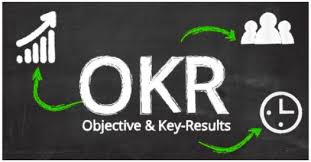Data is used by business analysts to create business insights and advocate improvements in corporations and other organizations. Business analysts can detect problems in almost any aspect of a business, including IT processes, organizational structures, and employee development.
As companies strive to improve efficiency and cut expenses, business analytics has become an essential component of their operations. Let’s look more closely at the business analyst job description, skills, and certifications, and how to get a job as a business analyst.
Who is a Business Analyst?
Within an organization, business analysts assess present systems and establish strategic plans. This necessitates in-depth knowledge of both the unique business and industry trends and conventions. Communication plans between internal departments and external stakeholders are an important feature of the business analyst profession.
According to the International Institute of Business Analysts (IIBA), business analysts are change agents, and one of the key roles of a business analyst is to introduce change in an organization. These adjustments might be high-level, such as larger-scale structural or policy changes, or they can be more specific, such as identifying cost-cutting options. In either case, the improvements implemented by a business analyst should assist an organization in identifying and realizing new opportunities.
Business analysts will also create or update computer systems in business to meet their clients’ needs. The business analyst gives requirements to the IT department for this new technical system to be created, as well as supports the system’s testing and deployment.
What is the Role of a Business Analyst?
Business analysts examine how a company functions, conduct research and analyze data to expand their expertise, and make recommendations to the firm on how to improve their practices and processes. This is frequently done to help the organization make more money, address existing business difficulties, and/or achieve its goals more effectively.
A business analyst’s work is inextricably linked to the IT industry, and in some organizations, business analysts may be regarded as a technical job function and work in an IT department. Nowadays, business analysts’ solutions for their customers typically involve the adoption of new or enhanced computer systems, and the analyst’s responsibility may extend to familiarizing the rest of the business with the benefits of this new technology and training colleagues on how to utilize it.
A business analyst will typically:
- Examine a business’s structure, how it use technology, and what its objectives are.
- Identify difficulties in a business, including through the use of data modeling techniques
- Communicate with senior executives in organizations to learn what they intend to accomplish
- Based on previous studies, develop approaches for firms to better
- Convince internal and external stakeholders of the advantages of new technologies or techniques
- Supervising the installation of new technologies and systems
- Conduct workshops and training sessions
Job Description for a Business Analyst
BAs are in charge of developing new models to support business decisions by collaborating closely with financial reporting and IT teams to develop initiatives and strategies to improve importing and reduce costs.
According to Robert Half, a typical job description for a business analyst includes:
- Creating a detailed business analysis highlighting a business’s issues, prospects, and solutions
- Budgeting and projections
- Monitoring and planning
- Analysis of Variance
- Pricing
- Reporting
- Determining business requirements and communicating them to stakeholders
According to Bob Gregory, a professor and academic program director at Bellevue University’s business analysis and management degree program, identifying and then prioritizing technical and functional needs is at the top of the business analyst’s list of responsibilities.
A business analyst’s work is continually evolving and changing, particularly as firms rely increasingly on data to advise business operations. Every company has distinct difficulties that a business analyst can help with, such as coping with obsolete legacy systems, changing technology, broken processes, low client or customer satisfaction, or siloed massive enterprises.
Business Analysts’ Typical Employers
- Firms that specialize in business analysis
- Firms providing consulting and professional services (including technology consulting companies)
- Organizations in the public sector (such as county councils)
- Corporations in the technology sector
- Companies that conduct research
- Larger organizations with a need for in-house analysts (such as banks, utilities companies and multinational retailers)
Experienced business analysts may be able to work for themselves as independent contractors.
Graduate positions in business analysis often pay between £20,000 and £30,000 per year. More experienced workers can expect to earn between £35,000 and £70,000 each year. However, salary is also affected by the size of the company, the complexity of the project, and the industry in which you work — salaries for business analysts in investment banks have topped £90,000.
Qualifications and Experience.
A bachelor’s degree in any area is normally required for business analyst employment, while employers may prefer a degree in a business-, computing-, economics-, or numeracy-related subject. You can obtain your degree through full-time university study or an apprenticeship as a business analyst.
For a business analyst, you may also be able to obtain a professional qualification from the International Institute of Business Analysis (IIBA) or the Chartered Institute for IT (BCS) before beginning your career or as part of your professional growth. For example, the BCS offers foundation certifications in business analysis, which can serve as an introduction to business analysis and can also lead to more advanced qualifications, such as the BCS’s international diploma in business analysis or the certificate of proficiency in business analysis (offered by the IIBA).
Business Analyst Skills
The profession of business analyst necessitates both hard and soft skills. Business analysts must be able to pull, evaluate, and report data trends, as well as share that information with others and apply it on the business side. A background in IT is not required for all business analysts as long as they have a general understanding of how systems, products, and tools work. Alternatively, some business analysts have a strong IT background but little business knowledge and are interested in transitioning from IT to this hybrid function.
According to the IIBA, the following are some of the most significant skills and experience for a business analyst:
- Communication skills, both oral and written
- Interpersonal and consultative skills are required.
- Capabilities in facilitation
- Problem solving and analytical thinking
- Being detail-oriented and capable of generating high-quality results
- Organizational skills
- Understanding of business structure
- Analysis of stakeholders
- Engineering of requirements
- Cost-benefit analysis
- Modeling of processes
- Knowledge of networks, databases, and other technology
Business Analyst Salary
According to PayScale, the average annual salary for an IT business analyst is $67,762. BAs are paid the most in San Francisco, where the average pay is 28% higher than the national average. New York is second, with reported salaries that are 18% higher than the national average; Boston is third, with a 7% higher yearly salary.
PayScale provides information on similar job titles in the category of business analyst. The following are the average salaries for those positions:
| Job title | Average salary |
| Business management analyst | $60,428 |
| Business performance analyst | $60,678 |
| Business analyst II | $64,981 |
| Junior IT business analyst | $65,330 |
| Application business analyst | $66,882 |
| Business intelligence analyst | $66,791 |
| ITSM business analyst | $66,891 |
| Technical business analyst | $71,489 |
| Agile business analyst | $74,000 |
| IT business analyst | $74,000 |
| Business solutions analyst | $75,243 |
| Systems business analyst | $78,095 |
| Business analyst III | $78,107 |
| Senior IT business analyst | $90,201 |
Business Analyst Certifications
Although business analysis is a relatively young profession in IT, a few organizations currently offer certifications to help you strengthen your portfolio and verify your worth as an analyst. Organizations such as the IIBA, IQBBA, IREB, and PMI each provide their own specific business analyst certifications. These are some examples:
- IIBA Entry Certificate in Business Analysis (ECBA)
- IIBA Competency in Business Analysis Certification (CCBA)
- Certified Business Analysis Professional (IIBA) (CBAP)
- Agile Analysis Certification from the IIBA (AAC)
- IQBBA Foundation Level Business Analyst Certifications (CFLBA)
- Certified Professional in Requirements Engineering by the IREB (CPRE)
- PMI Business Analysis Professional (PBA)
Boot Camps
Unlike certificates, which are designed to demonstrate your existing skills, boot camps are aimed to teach you new skills or improve your present set. Boot camps can range from basic workshops done over a few days to full-fledged, instructor-led courses that last weeks or months. Whatever your preferred learning approach is, you may find a boot camp to meet your requirements.
Courses are frequently given both in-person and online; alternatively, your organization may invite a boot camp to your location to conduct a four-day program. Some boot camps are free, while others may charge a monthly subscription fee or a one-time price ranging from $100 to $2,500, depending on the curriculum. They are all meant to provide hands-on experience and assist you in developing your resume and portfolio; some even include career coaching and mentorship.
Master’s degrees
If you have a bachelor’s degree in computer science or a business degree, you should consider pursuing a master’s degree in business analysis. What type of degree you pursue will be determined by the area of BA or IT in which you choose to work, but there are numerous programs geared to provide you with a formal business analyst education.
Other Common Business Analyst Job Titles and Salaries
Positions in the workplace are now characterized not by titles, but by the skill sets that the function necessitates. Many job titles, for example, correspond to the duties of a business analyst. Some of the most common are listed below.
#1. Information Security Analyst
Average annual salary: $99,730
By 2029, job opportunities will have increased by 31%. (Much faster than average)
Individuals in this role are responsible for ensuring the security of an organization’s computer and technology systems. Their activity is strongly related to the defense of organizations from cyberattacks.
#2. Computer Systems Analyst
Average annual salary: $90,920
By 2029, job opportunities are expected to increase by 7%. (As fast as average)
Individuals in these jobs, often known as system architects, are responsible for optimizing an organization’s efficiencies through the review of a company’s technical systems and procedures. This analysis is usually followed by a recommendation for better procedures in the future.
#3. Operations Research Analyst
Average annual salary: $84,810
By 2029, the job outlook will have increased by 25%. (Much faster than average)
Responsibilities: Operations research analysts help firms investigate complicated issues, solve challenges, and improve decision-making methods by conducting mathematical and analytical studies.
#4. Business Data Analyst
Average annual salary: $68,346
Responsibilities: Business data analysts collect and evaluate data on behalf of organizations. They frequently convey this information to stakeholders to discover patterns and opportunities for improvement.
Business analyst positions are frequently regarded as entry-level within an organization’s infrastructure, implying that there is plenty of room for advancement. The additional chances for business analysts to further tailor their career depending on the aspect of their work on which they desire to focus are what distinguishes these roles. Business analysts who wish to specialize in IT, for example, can go in that direction, but those who want to be more client-focused can pursue a management consulting role.
How to Get a Job as a Business Analyst
There are two paths you might pursue to become a business analyst, depending on whether you have prior IT experience or are starting from zero.
#1. Apply Directly After Graduation
After getting a bachelor’s degree in business, accounting, information systems, human resources, or another similar discipline, you can apply for entry-level business analyst positions right out of college.
How can you distinguish yourself as a recent graduate from other applicants?
Strong communication, critical thinking, and problem-solving skills will help you stand out from the crowd. Adding internships in business analysis to your résumé while in college will also offer you an advantage over other applicants.
#2. Make a Career Change
If you presently work in another area of IT or business, you most likely already have many of the skills needed to become a business analyst. A software developer’s analysis and data mining skills, for example, transition effortlessly to the tasks of a business analyst.
Understanding operational processes and project management will offer you an advantage in a business analysis career if you come from a business background. Transferable skills can help you avoid entry-level roles and transition smoothly into the post of business analyst.
How to Become a Business Analyst In Three Easy Steps
To become a business analyst, you must first master a few key skills.
Here’s how to get ready.
#1. Acquire Fundamental Business Analysis Skills
As a rookie business analyst, you’ll need to have these vital skills under your belt. There are training classes for each of these skills that you may take to improve your knowledge:
Documentation abilities:
It is vital to be able to create clear, succinct documentation. Business analysts are in charge of documenting functional requirements, wireframes, business cases, and other details. Strong documentation and writing skills will aid you in getting started. Business analysts spend a significant analysis of time evaluating problems and determining solutions. Understanding business, software, and information workflows will help you succeed in your career.
Business analysis tools:
As a new business analyst, you will need to be familiar with fundamental office applications such as Excel and PowerPoint, as well as typical visual modeling tools such as Microsoft Visio. Experience with project management software is a plus.
Visual modeling approaches:
Business analysts are expected to assess, improve, and automate business processes using flowchart methodologies such as BPMN (Business Process Model and Notation).
Elicitation abilities:
Business analysts conduct elicitation sessions to communicate project needs to stakeholders. Understanding how to draft successful requirements and lead productive meetings is an important business analyst job function.
When applying for business analyst employment, these skills demonstrate that you have the essentials to succeed in the role.
#2. Participate in Business Analysis Training Courses
Taking business analysis training classes will help you obtain the advanced skills you need to achieve forward, whether you are new to the subject or want to earn a professional certification.
Investing in business analyst education should include a broad range of key job functions, such as:
- Creating persuasive business cases and requirements documents
- Sound budgeting is used to back up strategic business suggestions.
- Process mapping best practices utilizing the Business Process Model and Notation (BPMN)
- How to Use Business Process Diagrams to Solve Practical Business Problems (BPDs)
- Being knowledgeable with Agile project management
#3. Obtain a Certifications as a Business Analyst
Consider obtaining a professional qualification if you want to work as a senior business analyst.
Certifications as a business analyst expand your professional development prospects inside your present employer and can enhance your pay by an average of 11%.
The International Institute of Business Analysis (IIBA) certifies business analysts at three levels.
ECBA (Entry Certificate in Business Analysis):
This certificate is intended for recent college graduates and professionals who are changing careers. Earning the ECBA validates your entry into the field of business analysis.
Qualification of Capability in Business Analysis (CCBA):
After two to three years of business analysis experience, you are eligible for this certification.
Certified Business Analysis Professional (CBAP):
This credential demonstrates your ability to manage and lead in a business analysis capacity. It is necessary to have at least five years of BA experience.
Professional development hours are required for all three IIBA certificates. These hours can be obtained through approved classes (online or in-person), webinars, workshops, and self-directed learning.
For those seeking a senior BA position, Certified Business Analysis Professional (CBAP) certifications are strongly recommended. Earning the CBAP shows your commitment to the industry as well as your ability to lead business improvement programs.
Job Opportunities for Business Analytics Majors
In answer to the question, “Is a business analytics degree worth it?” The job prognosis for business analysts in 2021 is excellent. According to the Bureau of Labor Statistics, the profession will expand 11 percent by 2029, which is substantially higher than usual, and there were over 800,000 business analyst jobs available in 2019. As one might assume, the majority of business analytics jobs are located in metropolitan population areas where significant firms have their headquarters. Washington, D.C., New York City, Chicago, Los Angeles, and Boston have the greatest rates of employment for business and management analysts.
To remain relevant, business analysts and management analysts must continue to change their jobs and keep up with technological advances. Many business analysts have fused into data scientists and/or are figuring out how to integrate big data analysis with the kind of critical thinking that can only be done by a human—for the time being.
Business Analytics Software and Technologies
Software such as Microsoft Excel, Microsoft PowerPoint, Microsoft Access, SQL, Google Analytics, and Tableau are commonly used by business analysts. These tools assist BAs in gathering and sorting data, creating graphs, writing documents, and designing visualizations to explain the findings. A business analyst role does not require programming or database skills, but if you already have these skills, they will come in handy. The software and tools you’ll need to use will be determined by your job title and the needs of the organization.
Business analysts play an important part in software development.
Real-time user data and analytics systems are used by business analysts to detect user trends, successful functionalities, and future user adoption issues with the apps. Business analysts become increasingly valuable to firms as data gets more valued.
Similarly, the expansion and faster, iterative pace of software development have shifted the timing of the BA’s involvement in a specific development project. In a traditional waterfall development context, a BA is more heavily involved at the front end, gathering, assessing, and prioritizing user needs before handing them off to developers and moving on to the next software development project. Meanwhile, BAs on agile projects typically stick with the project throughout implementation and even many releases.
Organizations frequently allocate BAs to multiple projects at the same time if they are small enough, or they may assign a BA to a single project if it is complex. Organizations also assign many BAs to particularly big software development projects, according to Hammond. However, some IT teams nowadays do not include business analysts in all in-house application development initiatives, according to Emo.
What is the role of a Business Analyst in Agile development?
A Business Analyst works closely with the Agile development team to ensure that the requirements are well understood and that the development process stays aligned with the overall project goals. This may involve participating in Agile ceremonies such as sprint planning and daily stand-ups, as well as continuously verifying that the project is delivering value to the business.
What is the role of a Business Analyst in business strategy and decision-making?
A Business Analyst provides valuable insights into the market, customer behavior, and industry trends that can inform business strategy and decision-making. They analyze data, gather information, and help organizations make informed decisions that align with their overall objectives and goals.
What is the role of a Business Analyst in bridging the gap between IT and the business?
A Business Analyst acts as a liaison between the IT department and the business, ensuring that both parties have a clear understanding of each other’s goals and requirements. They translate complex technical language into business terms, and help to align IT initiatives with the overall goals and objectives of the business.
What is the difference between a Business Analyst and a Data Analyst?
A Business Analyst focuses on understanding an organization’s operations and processes, and using this information to identify opportunities for improvement. A Data Analyst, on the other hand, focuses on collecting, analyzing, and interpreting large amounts of data to support decision-making and drive business outcomes.
What is the role of a Business Analyst in data analysis?
A Business Analyst may work with data analysts to identify trends and patterns in data that can inform business decision-making. They help to translate complex data insights into actionable recommendations for the business, and ensure that data-driven decisions align with the organization’s overall goals and objectives.
Business Analyst FAQs
Is business analyst a stressful job?
At some point in time, a business analysis may become stressful. However, this does not imply that your job is the only one that is stressful and that other professions are simple. Every job may result in a difficult scenario, but it is up to the individual how he or she manages it.
Does business analyst have future?
Once a Business Analyst has gained knowledge, he or she can advance to become a Project Manager, Functional Consultant, Product Owner/Analyst, Pre-Sales Consultant, or even IT PMO in the firm due to the exposure across SDLC.
Who earns more business analyst or data analyst?
According to Indeed.com, data analysts earn an average salary of $70,246. Business analysts often earn more, but experts in both jobs are well-positioned to advance to the role of “data scientist” and earn a data science salary—$113,436 on average.






